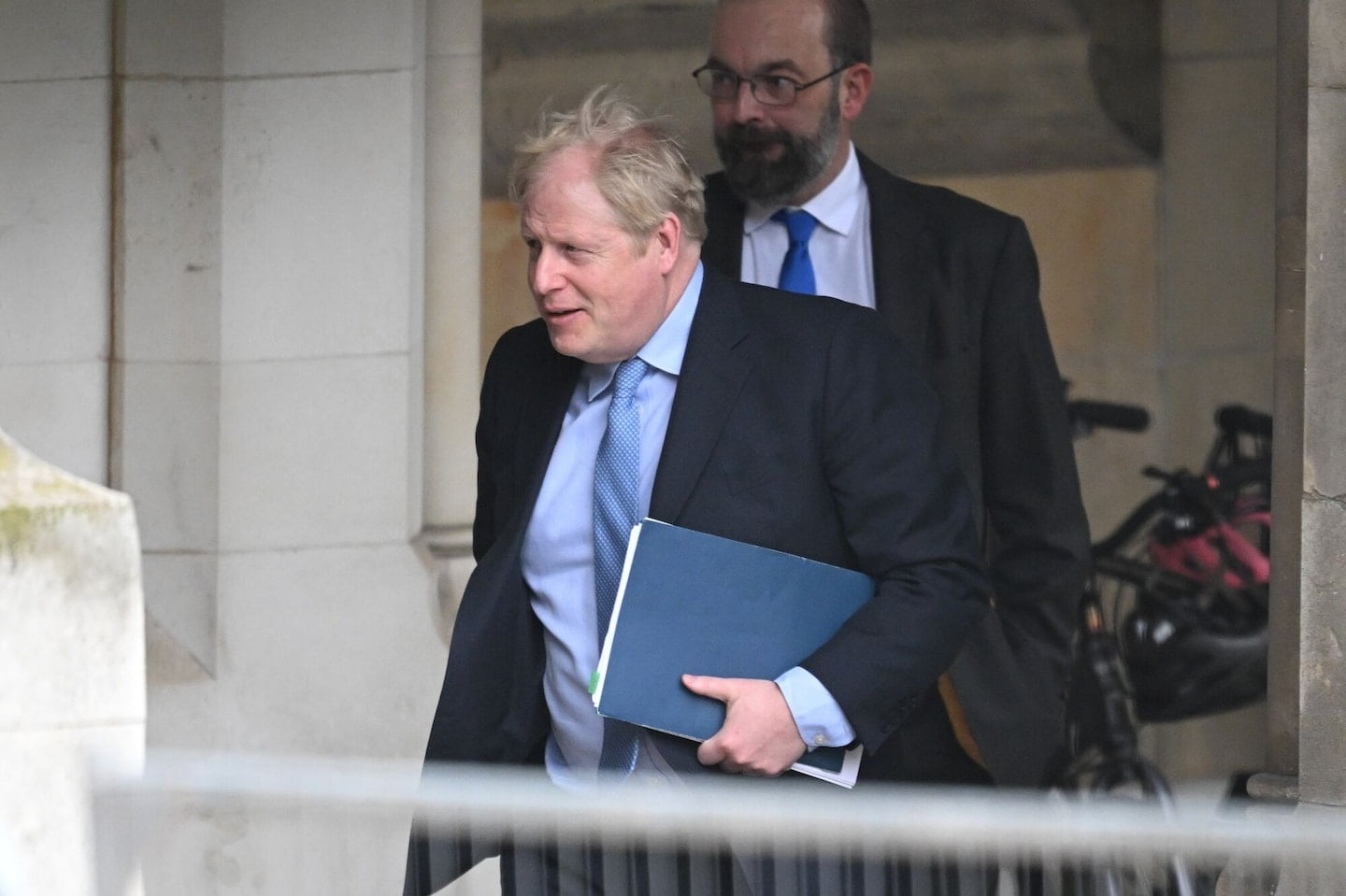Last week, a bipartisan House of Commons committee found that former UK Prime Minister Boris Johnson had deliberately misled lawmakers about his staff’s repeated violations of lockdown rules that had been imposed during the peak of the Covid-19 crisis. The committee’s report makes for grim reading. But it also may mark a crucial first step toward restoring Britain’s tarnished democracy.
Johnson, who was forced out of office last year in part over the events that became known as “Partygate,” resigned as a member of Parliament on seeing the report’s conclusions. Echoing another ex-leader in hot water, Johnson decried the process as a “witch hunt,” and the Conservative-majority committee as a “kangaroo court” whose findings were “deranged.” Don’t believe it.
No one reading the 108-page report and annexes could conclude that it lacked rigor. Its conclusions were unequivocal and damning. The committee found five different ways in which the former prime minister committed contempt of Parliament. Some of Johnson’s explanations were “so disingenuous that they were by their very nature deliberate attempts to mislead the Committee and the House,” the report concluded. As one tabloid put it, Johnson told a “proper whopper.” And not just one.
As for the conduct itself, the report detailed six parties at government buildings during 2020 and 2021, when strict lockdown rules were in effect. These included a Christmas “cheese and wine” event; a “bring your own booze” party with more than 200 invitees; and a birthday bash for Johnson himself in the Cabinet Room, for which he and others were subsequently fined. At the time, all nonessential businesses were closed and millions of people were prohibited from even attending their loved ones’ funerals.
The report found that Johnson was aware of the gatherings, knew that they violated Covid rules, and repeatedly attempted to mislead lawmakers about them.
Johnson’s supporters have insisted that — as political scandals go — this was not the end of the world. No classified documents were at risk and the offenses in question didn’t rise to the level of serious criminality. Since Johnson had already resigned as an MP, a recommended 90-day suspension was moot and the House instead agreed that he’d merely be denied a pass to access parliamentary buildings customarily given to former lawmakers.
Even so, it would be a mistake to think that the stakes of this episode were unimportant. Democracies can survive officials who behave badly, but not institutions that tolerate them or fail to uphold their own rules. A forthright investigation of this kind could go a long way toward restoring public trust in UK political institutions, which has been on a marked decline in recent years.
Britain still needs to do more to strengthen its institutions. (For one thing, it could reform the bloated and unrepresentative 700-plus-member House of Lords and an honors system that too often has little to do with honor and everything to do with patronage powers.) But a thorough parliamentary rebuke of the lawlessness and imprudence of the Johnson era could well mark a turning point.
It will now be up to Prime Minister Rishi Sunak — who entered office promising “integrity, professionalism and accountability” — to make good on his commitment to raise standards in public life. That will be a significant challenge — but, as Johnson’s reckless reign showed, a worthy one.
More From Bloomberg Opinion:
• Persistent UK Inflation Should Worry Everyone: Mohamed A. El-Erian
• How to Dodge the Coming UK Mortgage Tsunami: Marcus Ashworth
• What I Learned From Buying a House in London: Matthew Brooker
The Editors are members of the Bloomberg Opinion editorial board.
More stories like this are available on bloomberg.com/opinion

